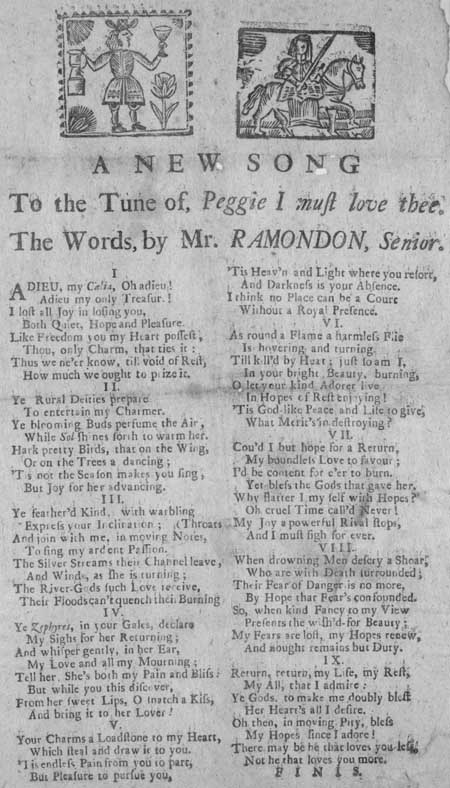Commentary
This ballad begins: 'ADIEU, my Celia, Oh adieu! / Adieu my only Treasur!' The text preceding the ballad reads: 'To the Tune of, Peggy I must love thee. / The Words, by Mr. Ramondon, Senior.' There are two woodcuts at the top of the sheet. Very little is known about Mr Ramondon, Senior, except that he was a prolific broadside lyricist. 'Celia' was a popular pastoral literary motif, during the seventeenth and eighteenth centuries. There was a resurgence in interest in the classical period and in retelling simple romances, during this period. The name 'Celia' appealed as it fulfilled both functions, stemming from the Latin Caelius which had connotations of heaven. Its use was lost during the Middle Ages, but it was rediscovered and then pioneered by Shakespeare in his play, 'As You Like It'. Broadsides are often crudely illustrated with woodcuts - the earliest form of printed illustration, first used in the mid-fifteenth century. Inclusion of an illustration on a broadside increased its perceived value, especially among the illiterate. To keep costs down, publishers would normally reuse their limited stock of generic woodcuts.
View Transcription | Download PDF Facsimile
|
 |
Probable date published:
1715- shelfmark: S.302.b.2(074)
 View larger image
View larger image
|


